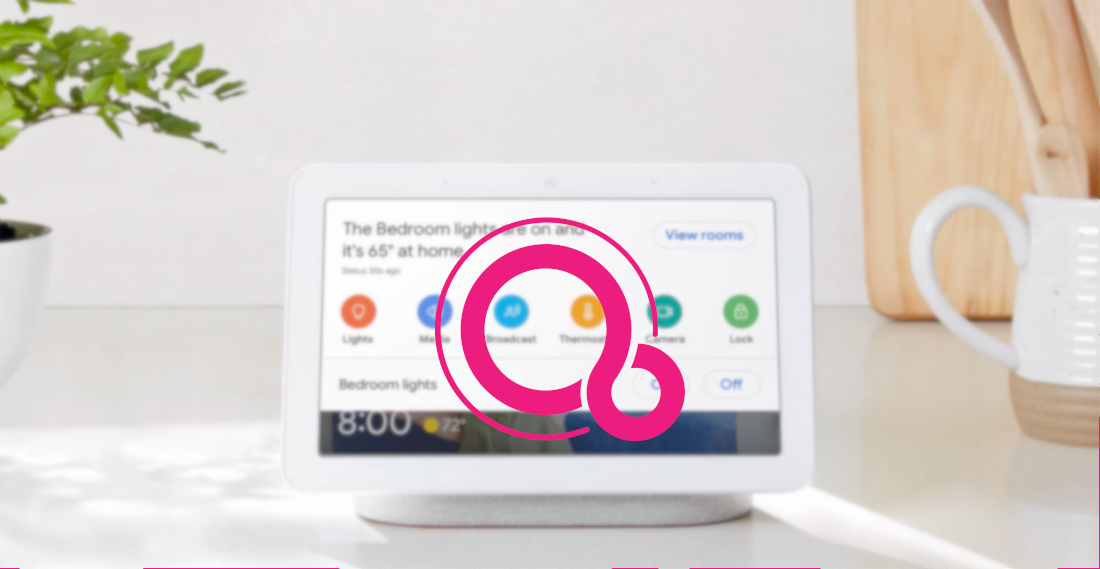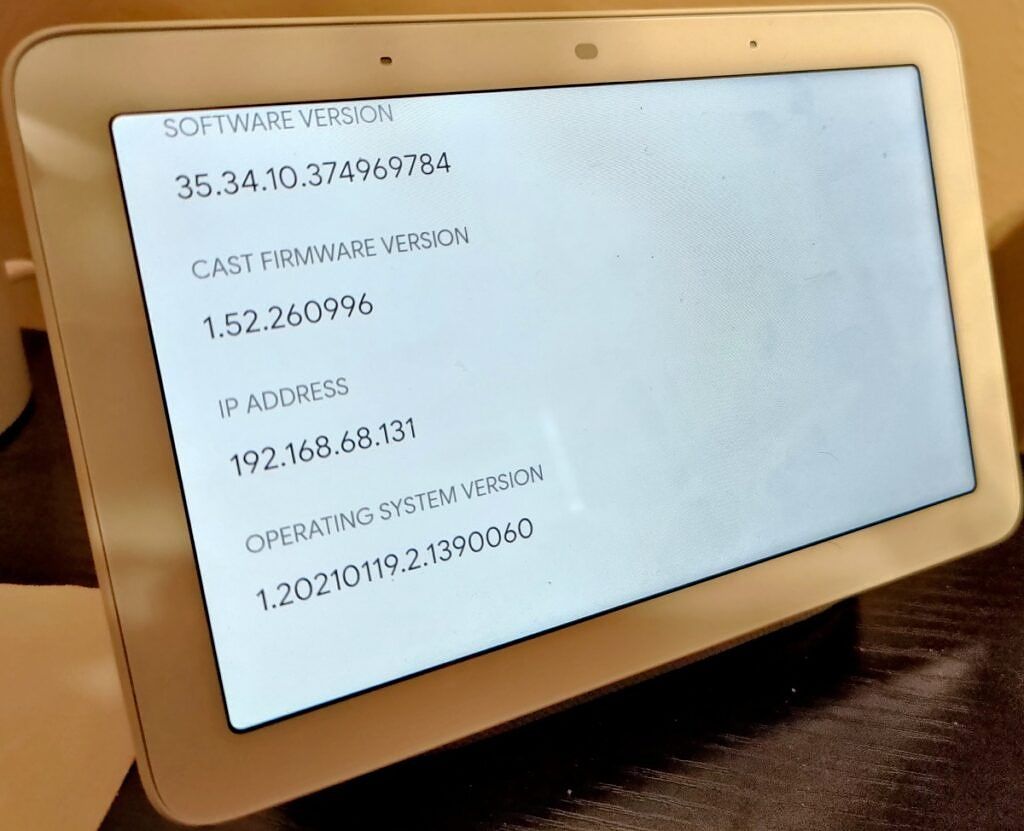Update 1 (08/18/2021 @ 1:49 PM ET): First-gen Nest Hub owners are being treated to a big update this week, as Google has confirmed it is widely rolling out Fuchsia OS. Click here for more information. The article, as published on May 25, 2021, is preserved below.
Google’s puzzling Fuchsia OS is finally coming alive on a real-world device — not on a phone as many had hoped and presumed, but on a smart home product. Google is rolling out a new update to the first-gen Nest Hub, which replaces its existing operating system with Fuchsia OS.
Nest Hub is a Google Assistant-powered smart speaker with a large 7-inch display. It was launched all the way back in 2018 and ran Cast OS, a Linux-based operating system. Now, Google is planning to replace the OS out in favor of Fuchsia OS (via 9to5Google). As exciting as it sounds, the new Fuchsia OS-based update will not bring any major UI changes. In fact, all user-facing design elements and overall functionality and feature of the Nest Hub will remain the same as before.
The Fuchsia-based update will be rolling out to the first-gen Nest Hub devices over the coming months. Transitioning to Fuchsia OS from Cast OS will be a slow process. It will first hit Nest Hub devices running the Preview Program, followed by broader availability.
For now, Fuchsia will be making its way to 2018 Nest Hub units only. Google hasn’t clarified if and when it plans to bring its newest operating system to other Cast OS-based devices, including the 2nd gen Nest Hub. Considering Fuchsia has been in development since 2016, it's great to see it actually running on a real-world device. Unlike Android and Chrome OS which are Linux-based, Fuchsia OS is built from scratch and uses a new microkernel called Zircon.
Since its very inception, Fuchsia has remained shrouded in mystery, inviting all kinds of wild theories and opinions from all corners of the tech community. One of the most common theories surrounding Fuchsia has been Google eventually replacing the Android operating system with Fuchsia. We don't know what the future holds but seeing where things stand right now, it's unlikely that Fuchsia will replace a mature operating system like Android anytime soon. Operating systems aren’t something you start building today and shipping tomorrow. If Android is where it is, it’s because of over a decade of hard work, contributions from countless developers, and the feedback of millions of users. It would be folly to suggest Fuchsia OS as a replacement for Android, especially at this nascent stage, after more than six years of development.
Update 1: Widely rolling out
Back in May, Google started rolling out Fuchsia OS to a handful of first-gen Nest Hub owners enrolled in the preview program. Now, the company has confirmed to 9to5Google that the OS update is widely rolling out to all users, not just those enrolled in the preview program.
The Fuchsia OS update is rolling out with firmware version 1.52.260996. To check whether your device has received this update, you can open the Google Home app, tap on your device, and then select "Device information." Alternatively, you can go to your Nest Hub, swipe up from the bottom, hit settings, and then tap "About device." If you see an "Operating System Version" field, then your Nest Hub is for sure running Fuchsia OS.
You probably won't notice that your Nest Hub is running a new OS, and that's exactly how Google intended the migration to feel. Some people feel the Nest Hub is more responsive after the upgrade, but the improvement isn't so dramatic as to be obvious.


